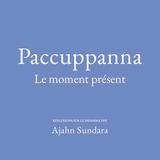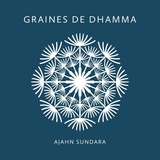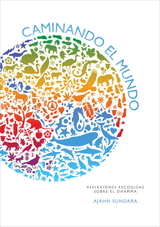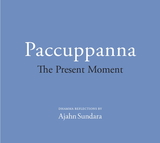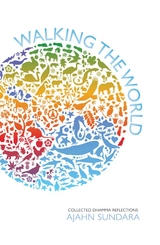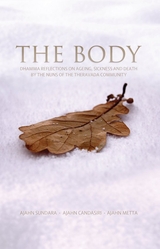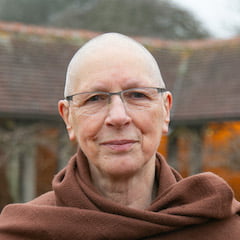
Ajahn Sundarā
Ajahn Sundara is French and was born in a liberal non-religious family. After studying dance, she worked and taught for a few years in that field. In her early thirties she encountered the Dhamma through Ajahn Sumedho’s teachings and a ten day retreat that he led in England. Her interest in Buddhist teachings grew, and in 1979 she joined monastic community of Chithurst Monastery where she was ordained as one of the first four women novices. In 1983 she was given the Going Forth as a sīladhāra (ten precept nun) by Ajahn Sumedho. Since then she has participated in the establishment of the nuns’ community, and for the last twenty years has taught and led meditation retreats in Europe and North America. As of 2011, she lives at Amaravati Buddhist Monastery.
